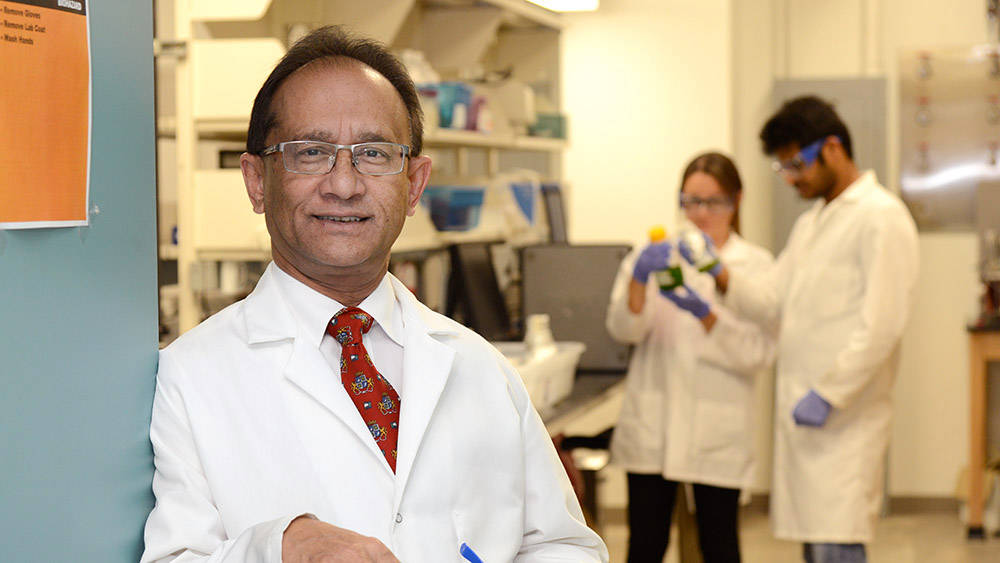
Dr. Muhammad Nazmul Karim, born in Muktagacha, Mymensingh District of Bangladesh, passed away on Friday, June 21, 2019 in Delf, The Netherlands, while on a work trip where he was giving the M. Sam Mannan Memorial Lecture Keynote. Karim received his Ph.D. in chemical engineering from the University of Manchester Institute of Science and Technology on a British Commonwealth Scholarship. Prior to that, he graduated from the Bangladesh University of Engineering and Technology (BUET) in 1972, where he was the First in Order of Merit, first Honors Graduate of BUET University in chemical engineering. His professors at BUET described him as one of the most brilliant students they had ever encountered.
From the University of Manchester, he became a member of the research faculty in the Dynamics and Control Laboratory at Twente Technical University in Eschede, Holland, followed by a research associate at the Department of Chemical Engineering at the University of Alberta in Edmonton, Canada. In 1978, he became an assistant professor at The University of Texas Permian Basin and in 1980, he joined the faculty at Colorado State University in Fort Collins, Colorado, where he eventually became the associate department chair from 1993-99. In 2010, he became the Whitacre Endowed Department Chair in Chemical Engineering at Texas Tech University, and in 2012, he became the holder of the Michael O’Connor Chair II Professor and head of Artie McFerrin Department of Chemical Engineering at Texas A&M University.
Karim, or “Naz” as he was commonly known among his friends and colleagues, was a tremendous scholar and teacher. In addition to his hundreds of publications and dozens of grants, he will be remembered for his energetic lectures, as well as his incredible mentoring and relationship-building skills. Often quoting Tagore or simply starting talks with a joke — he once started a lecture to graduating seniors by walking into the room wearing sunglasses because, “Boy, the future was bright,” — and he knew how to capture the audience’s attention. He helped launch the careers of over 21 Ph.D. students and influenced thousands of undergraduates. He was invited to give hundreds of talks all around the world, including spending two sabbaticals at the International Center for Cooperative Research in Biotechnology at Osaka University in Japan; the Department of Chemical and Process Engineering at the University of Newcastle, England; the Laboratory of Automation at the Helsinki University of Technology in Espoo, Finland; and the Department of Chemical Engineering at the Technical University of Denmark in Lyngby.
To his family, he was “Mejda” or “Kaiser.” No matter how successful he was in his career, he was always a father and husband first. He attended all of his daughters’ symphony concerts, basketball games, tennis matches, gymnastics meets and debate tournaments. He always helped with homework and checked every math assignment. More importantly, he enabled and inspired his two daughters to pursue their dreams, never once doubting what they were capable of achieving. Not once. He courted and married Selina in 1972 against the backdrop of a civil war that had erupted between East and West Pakistan. They were married 47 years, often traveling the world together. He always remained close to his immediate family, helping his parents, brothers and sisters, and nieces and nephews. He was the glue that kept the family together. Through it all, he never forgot his homeland, as he made every attempt to connect BUET’s chemical engineering department and students to other universities around the world. He funded a health clinic in his home village in Muktagacha. His generosity and heart touched everyone that he met. He loved cricket, fishing, reciting and writing poetry and cooking.
He is survived by his wife, two daughters, two grandchildren, and his brother and sister. A memorial service was held in Colorado on June 30.